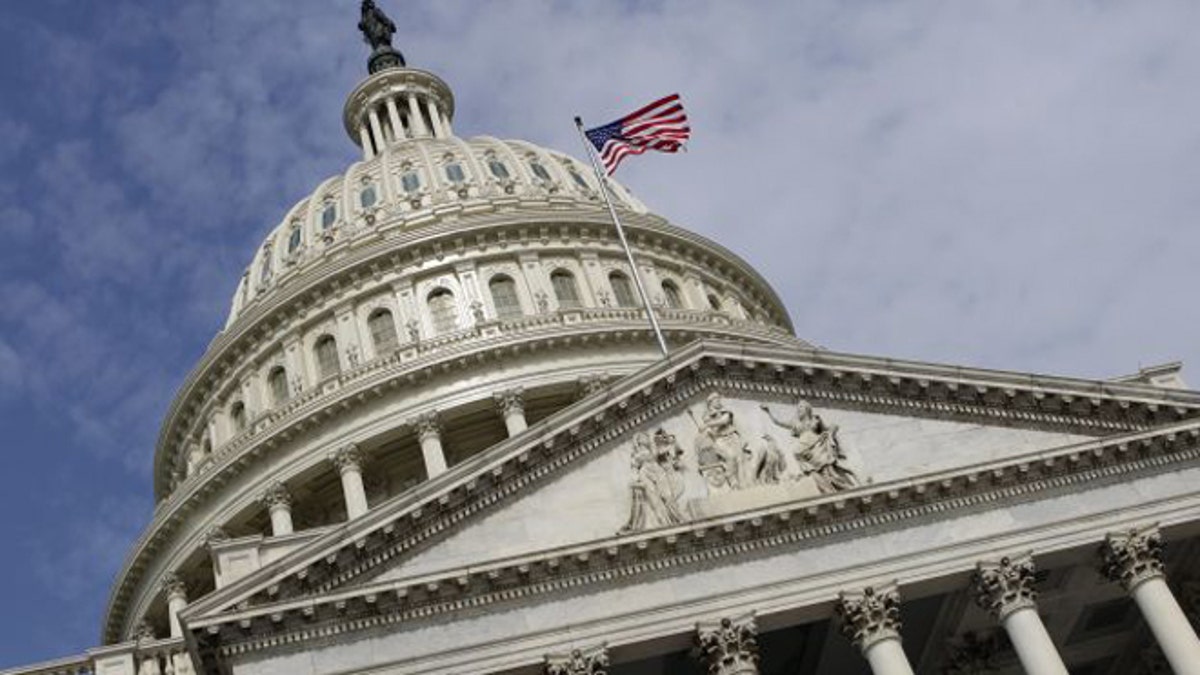
(AP)
In an episode of “The West Wing,” fictitious Senator Howard Stackhouse filibusters President Bartlet’s signature health care legislation, in order to increase funding for autism research. Realizing his intentions are worthy, the White House sends support to block their own bill and the day is saved.
Call me crazy, but I don’t think we should base democracy on Hollywood. In reality, the filibuster has become an increasingly large obstacle to good governance. Ending it is not only the reasonable thing to do, it is the conservative thing to do. Let me explain why.
This fall we again face what can only be described as a constitutional crisis masquerading as a recurring nightmare.
Senate Majority Leader Mitch McConnell will be barred from passing any appropriations bills, the debt ceiling will once again come calling, the president will gladly shut down the government in order to give tax dollars to Planned Parenthood, and a sizeable chunk of House Republicans will insist on breaking the spending caps in order to increase defense spending.
The Majority Leader has been incredibly patient with this lawless and obstructionist White House, and has longed for the Democrat caucus in the Senate to come to their senses. It will never happen.
Congress will not only fail to pass a comprehensive budget this year but, as this becomes the new normal, it will never pass one. Instead, government will be funded by massive concurrent resolutions, which guarantee large spending increases. Then next year, we will do it all over again.
Meanwhile, conservative priorities, such as the Keystone Pipeline, repealing ObamaCare, defunding planned parenthood, securing the border and reversing Obama’s executive orders have little chance of passing.
Why? Because despite controlling both houses of Congress, Republicans cannot muster the 60 Senate votes necessary to end a filibuster. Yes, the president could veto our bills anyway, but as it stands now, he never even has to face the difficult decision of disagreeing with the American people and their duly elected representatives.
Senator McConnell recently told Politico that his strategy to manage this is to play the waiting game. He wants Congressional Republicans to hold off on important but controversial issues, while we fund government long enough to avoid a shutdown and elect a Republican President.
The problem is, it won’t make any difference. There will still be a showdown this fall and nothing will change if Republicans win the White House – as we are unlikely to have 60 Senators, so Democrats will be able to perpetuate our current state of government stasis.
If you think voters are frustrated now, just wait until 2017 when a Republican president can’t pass legislation through a Republican-controlled Congress.
This isn’t just a problem for the Republican Party. It has implications for our democracy. If electoral mandates have no meaning, voting loses its efficacy and participation becomes less appealing. If voting doesn’t change anything, why bother?
All of this adds up to a disaster, so why has nothing been done? Why have we not retired the filibuster from the Senate?
To most thinking people, altering democracy is an extremely serious matter. The Constitution should rarely be amended. I agree. But guess what? The filibuster isn’t in the Constitution, nor was it even part of the original Senate rules.
Named for 19th Century Spanish pirates called filibusteros, the first filibuster did not happen until 1837 and thereafter was a rarity. It happened so infrequently that cloture, the Senate motion to stop debate, was not created until 1917. When it was, it required a two-thirds majority, which was lowered to three-fifths – or 60 Senators – in 1975, because it wasn’t being used.
Now, the filibuster has turned into an everyday occurrence. It has been used 1,300 times since 1917, but nearly 900 of those came since 1990 and nearly 600 since 2003.
This increase is not just a symptom of partisan gridlock, it is also a cause. When both sides have a veto, neither has an incentive to come to the table. You don’t have to have written “The Art of the Deal” to figure that out.
In a deliberative body, consensus and progress are driven by diffusion of power. But the filibuster has allowed Senators to act unilaterally. It has become a way for them to score points, posture and pretend to have executive authority.
In Federalist 58, James Madison warned of the dangers of a supermajority, foreseeing that “…power would be transferred to the minority.”
Thanks to the creation of an obscure, arbitrary rule, his prediction has come true and the status quo has become entrenched. Balance of power has become tyranny of inaction.
Senators on both sides of the aisle have made the unthinkable, the rational. The only reasonable course of action now is for Mitch McConnell to remove the filibuster. And he could do this tomorrow, with a simple up or down vote.
The Majority Leader has been incredibly patient with this lawless and obstructionist White House, and has longed for the Democrat caucus in the Senate to come to their senses. It will never happen. Some things are more important than the peculiar notions of etiquette in the world’s most dysfunctional body. Big-bladdered pirates have held our democracy hostage long enough.
The American people are angry and sick of routine government incompetence. They demand reform and action. The mood of the country is crying out for a conservative revolution. Let’s give it to them.




















